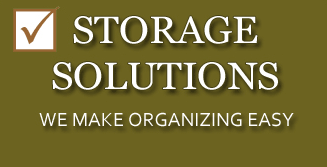Website Designed By
www.WhamoWebsiteDesign.com
www.WhamoWebsiteDesign.com


10 COMMERCIAL & RESIDENTIAL REDESIGN SERVICES
New Clients I About Us I Starter Guide I Portfolio I Affiliates I Tips & FAQ I Lighting I Shop I News I Careers I Contact Us



We'd Love to Hear About your Home and Business Projects!!






Contact us or call to find out how we can help.
www.Info@Capital10Interiors.com
www.Info@Capital10Interiors.com





Links











ONE-TIME EVENT PLANNING YOU CAN RELY ON!

A special commercial event is a one-time event focused on a specific purpose such as a groundbreaking grand opening, or other significant occasion in the life of a business, company, group or family. Our service targets job fairs, awards banquets, contests, and other social events.
- We talk to other leaders who have successfully staged similar events. (If needed)
- We make sure the purpose for the special event merit the time and expense needed to properly stage, publicize and evaluate the event.
- We carefully match the type of event that is selected to the purpose that it serves. Do you want to reach out to new users or thank your supporters?
What is a Commercial Event?
Step #1. Stratagies To Success
Step #2. We Make a Checklist
Our checklist provides a step-by-step guide to organizing and executing a special event.
Step #3. We Create a Budget that works!
The objective is to provide a financial blueprint. The budget will be specific, and include revenue opportunities (sponsorship, ticket sales, donations. concession sales) as well as printing, permits, insurance, speakers, food, supplies, and security expenses.
Step # 4. We Consider Logistics
See Sample Checklist
With many activities going on simultaneously, there are many details to be checked. Major areas to consider and plan for include: size of space or building used, utility support needed, setup (tables and chairs, tents, portable toilets, parking, signs) co-ordination, cleanup, emergency plans, transportation, and public services such as police and fire services.
Step #5. Plan Publicity
Promoting a special event takes creative thinking balanced with practicality. The primary objective is to publicize the event, but secondary objectives should be considered:
- Did the event fulfill its goals and objectives?
- Why or why not?
- Identify what worked and what needs fine-tuning. Which vendors should be used again?
- What items were missing on the checklist?
- Was the event well attended?
- Was informal and formal feedback about the event positive?
- Given all that went into staging, was it worth doing?
Step #6. The Conclusion, Evaluating the Event
- Are you trying to inform, educate or entertain?
- Increase awareness or attendance of the event?
- Build a base support from a specific audience?
- Facilitate good community relations?
We take time to evaluate right after the event while the details are fresh. We may suggest our client consider having a questionnaire for participants to fill out. Some general evaluative criteria include:
Finally, it is important to remember to celebrate your successes with those who contributed.
Event Planning I Commercial Events I Weddings & Anniversaries
Basic Decorating Event Package I Special Celebrations I Window Display
Basic Decorating Event Package I Special Celebrations I Window Display
The Commercial Operation Process is set out in 6 sets below
- We ensure that the staff fully supports the special event.
- We select a working committee with broad representation.
- We target groups that have a special stake in the event such as library users, funders, politicians, business leaders, senior citizens, or parents.
Brainstorm all the available media and make a detailed list with names of whom to contact and when.
- We start planning at least three months ahead of the event, and in many cases, a year ahead of time.
- We develop ways to evaluate the event's success. Measurable event objectives may include attendance, the amount of money raised, the number of tickets/cards sold or increases in circulation